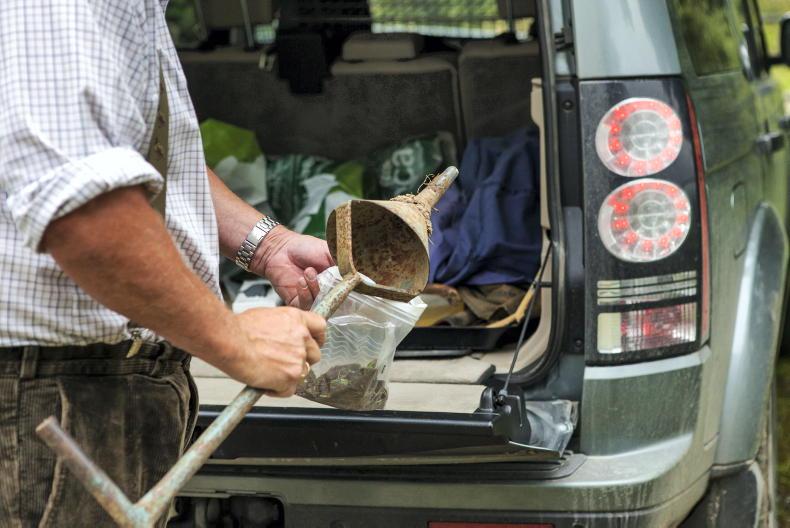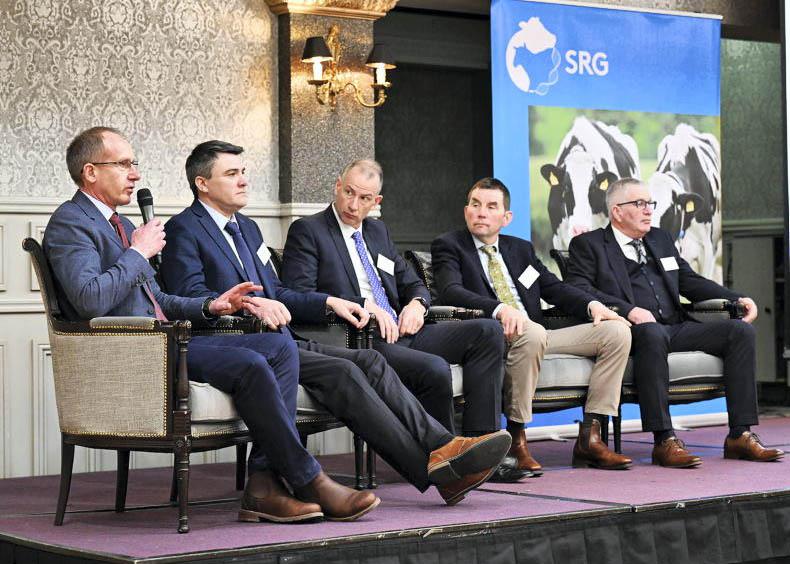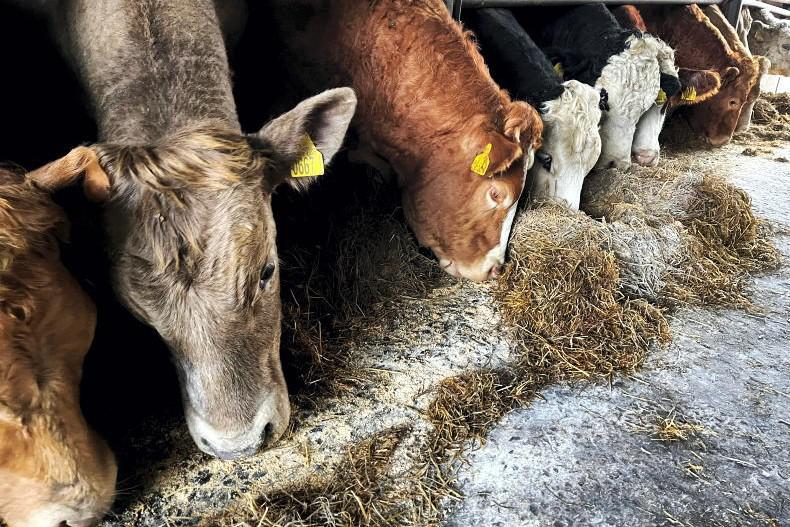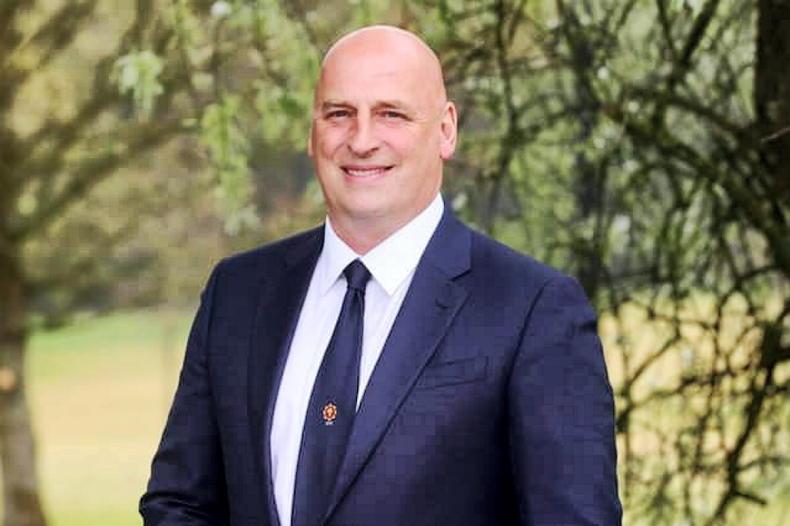Underlying all new agricultural policy development in NI is a strong environmental agenda that cannot be ignored, DAERA deputy secretary Norman Fulton has said.
Outlining the changes that lie ahead at an Ulster Farmers’ Union (UFU) meeting in Enniskillen last Thursday, Fulton rejected any suggestion that DAERA has gone too far in focusing on a green agenda.
“If we don’t address the environmental challenges, then NI agriculture is looking at a pretty bleak future,” argued Fulton.
He said there was a window of opportunity, but that if we don’t use the time well, there is the risk of draconian measures, citing the example of Holland, where government wants to close down 3,000 livestock farms.
Fulton believes that DAERA, working alongside farming and environmental stakeholders, has come forward with a “good balanced package” of measures. He doesn’t expect a new DAERA minister will fundamentally change the approach, but is clear that outside the EU, the Department can tweak and change policies if sufficient progress isn’t being made against targets.
Ultimately, he argues that when it comes to maintaining payments to farmers from the UK Treasury, the delivery of environmental outcomes “is the safest way”.
First change
The first big change is happening in 2024, with around 8.5% (£25m) taken from the Basic Payment Scheme (BPS) to fund the new beef carbon reduction scheme.
In 2025, DAERA will start the transition from BPS to the new area-based Farm Sustainability Payment (FSP) before it is fully rolled out in 2026.
Existing BPS entitlements will roll over and all land, outside of hard features, will be eligible. The minimum claim size will increase from 3ha to 5ha, while a progressive cap (starting at £60,000) will apply.
Non-farming landowners and grass sellers with no agricultural activity in 2020 and 2021, but who have managed to stay within the system, will be excluded from the FSP. They will probably have little option but to sell their BPS entitlements.
Conditions
Linked to the FSP is a range of measures and requirements, including new farm sustainability standards (FSS), tailored to NI conditions, replacing cross compliance.
To receive the FSP, farmers will also have to take part in carbon benchmarking and all aspects of the soil nutrient health scheme (SNHS), including associated training. It is also likely that farmers will have to produce annual nutrient management plans, and for livestock farmers, supply relevant information to the new Sustainable Ruminant Genetics body.
But with 8.5% of BPS money coming off in 2024 to fund the BCRS and 17% removed in 2025 once a new suckler scheme gets up and running, area-based payments will be significantly less than what they are now.
In addition, by 2026, a new Farming With Nature package of measures will be fully rolled out and this will also be funded by taking money out of the FSP.
If we end up with area-based payments that are half of what they currently are, and given all the requirements attached to getting the money, is there a danger some farmers will simply drop out of the system?
In response, Fulton points to various sustainability schemes currently being rolled out by dairy co-ops, which will require farmers to take actions similar to those necessary to get the FSP.
Profit to be made by Farming With Nature
Pilot programmes for the new Farming With Nature (FWN) package of measures should be open by the end of this year or early 2024, ahead of full roll-out by 2026, Norman Fulton told UFU members in Enniskillen.
These agri-environment schemes will be different from the current Environmental Farming Scheme (EFS), which is designed to only cover costs incurred and income foregone.
“We will be configuring the FWN schemes so that they are attractive. It is an enterprise where you can earn a profit and a return – that drives uptake and the change we need to achieve,” said Fulton.
He outlined how DAERA wants to see a large uptake, both in terms of farm numbers and land area, so the scheme will be open to everyone, with the minimum claim size set at 3ha. A payment cap will be set.
Outcomes
The initial focus will be mainly on improving habitats and biodiversity on farms, with a menu of options to choose from and payments based on outcomes.
“The better the outcome, the better the payment,” said Fulton.
He suggested FWN will be divided into three, with a farm nature payment open to all farmers, a scheme for high nature value land (similar to EFS higher) and a scheme delivered at landscape-scale by groups of farmers.
Rather than five-year agreements, Fulton said the Department is potentially considering 20-year agreements, reviewed every five years.
He also maintained it was “too early” to say just how much of the budget would end up in FWN, but the more uptake there is by farmers, the greater the amount taken out of area payments will be.
Carbon benchmarking programme launch
A carbon benchmarking programme will be “launching pretty soon” and, potentially, by the end of 2023, confirmed Norman Fulton.
While carbon benchmarking is initially being targeted at members of farm quality assurance schemes, it will be rolled out across all farms, with participation necessary to claim the new Farm Sustainability Payment (FSP).
Three-year cycle
Fulton told the UFU meeting it might take up to four years to get everyone benchmarked and that after that, it will be a three-year cycle.
“There is a statutory obligation to reduce our carbon footprint – it is the law. We want you to do this,” he said.
Freeing up land for trees
During the meeting in Enniskillen, Norman Fulton was asked about advice from the UK climate change committee (CCC), which suggests NI needs to rapidly expand afforestation rates, reaching 4,100ha per year by 2039. Current average rates are around 226ha per year.
In addition, the CCC advice refers to a further 3,500ha planted annually with energy crops (biomass) by 2030.
In response, Fulton acknowledged those targets “will be challenging”, but said managing and using land productively will free up areas for other things.
“We know we are not going to get a 10-fold increase in woodland by making the same offer as we are today,” he added.
Read more
Climate law taking NI Ag back 50 years
Farm payments cut by £25m next year
Underlying all new agricultural policy development in NI is a strong environmental agenda that cannot be ignored, DAERA deputy secretary Norman Fulton has said.
Outlining the changes that lie ahead at an Ulster Farmers’ Union (UFU) meeting in Enniskillen last Thursday, Fulton rejected any suggestion that DAERA has gone too far in focusing on a green agenda.
“If we don’t address the environmental challenges, then NI agriculture is looking at a pretty bleak future,” argued Fulton.
He said there was a window of opportunity, but that if we don’t use the time well, there is the risk of draconian measures, citing the example of Holland, where government wants to close down 3,000 livestock farms.
Fulton believes that DAERA, working alongside farming and environmental stakeholders, has come forward with a “good balanced package” of measures. He doesn’t expect a new DAERA minister will fundamentally change the approach, but is clear that outside the EU, the Department can tweak and change policies if sufficient progress isn’t being made against targets.
Ultimately, he argues that when it comes to maintaining payments to farmers from the UK Treasury, the delivery of environmental outcomes “is the safest way”.
First change
The first big change is happening in 2024, with around 8.5% (£25m) taken from the Basic Payment Scheme (BPS) to fund the new beef carbon reduction scheme.
In 2025, DAERA will start the transition from BPS to the new area-based Farm Sustainability Payment (FSP) before it is fully rolled out in 2026.
Existing BPS entitlements will roll over and all land, outside of hard features, will be eligible. The minimum claim size will increase from 3ha to 5ha, while a progressive cap (starting at £60,000) will apply.
Non-farming landowners and grass sellers with no agricultural activity in 2020 and 2021, but who have managed to stay within the system, will be excluded from the FSP. They will probably have little option but to sell their BPS entitlements.
Conditions
Linked to the FSP is a range of measures and requirements, including new farm sustainability standards (FSS), tailored to NI conditions, replacing cross compliance.
To receive the FSP, farmers will also have to take part in carbon benchmarking and all aspects of the soil nutrient health scheme (SNHS), including associated training. It is also likely that farmers will have to produce annual nutrient management plans, and for livestock farmers, supply relevant information to the new Sustainable Ruminant Genetics body.
But with 8.5% of BPS money coming off in 2024 to fund the BCRS and 17% removed in 2025 once a new suckler scheme gets up and running, area-based payments will be significantly less than what they are now.
In addition, by 2026, a new Farming With Nature package of measures will be fully rolled out and this will also be funded by taking money out of the FSP.
If we end up with area-based payments that are half of what they currently are, and given all the requirements attached to getting the money, is there a danger some farmers will simply drop out of the system?
In response, Fulton points to various sustainability schemes currently being rolled out by dairy co-ops, which will require farmers to take actions similar to those necessary to get the FSP.
Profit to be made by Farming With Nature
Pilot programmes for the new Farming With Nature (FWN) package of measures should be open by the end of this year or early 2024, ahead of full roll-out by 2026, Norman Fulton told UFU members in Enniskillen.
These agri-environment schemes will be different from the current Environmental Farming Scheme (EFS), which is designed to only cover costs incurred and income foregone.
“We will be configuring the FWN schemes so that they are attractive. It is an enterprise where you can earn a profit and a return – that drives uptake and the change we need to achieve,” said Fulton.
He outlined how DAERA wants to see a large uptake, both in terms of farm numbers and land area, so the scheme will be open to everyone, with the minimum claim size set at 3ha. A payment cap will be set.
Outcomes
The initial focus will be mainly on improving habitats and biodiversity on farms, with a menu of options to choose from and payments based on outcomes.
“The better the outcome, the better the payment,” said Fulton.
He suggested FWN will be divided into three, with a farm nature payment open to all farmers, a scheme for high nature value land (similar to EFS higher) and a scheme delivered at landscape-scale by groups of farmers.
Rather than five-year agreements, Fulton said the Department is potentially considering 20-year agreements, reviewed every five years.
He also maintained it was “too early” to say just how much of the budget would end up in FWN, but the more uptake there is by farmers, the greater the amount taken out of area payments will be.
Carbon benchmarking programme launch
A carbon benchmarking programme will be “launching pretty soon” and, potentially, by the end of 2023, confirmed Norman Fulton.
While carbon benchmarking is initially being targeted at members of farm quality assurance schemes, it will be rolled out across all farms, with participation necessary to claim the new Farm Sustainability Payment (FSP).
Three-year cycle
Fulton told the UFU meeting it might take up to four years to get everyone benchmarked and that after that, it will be a three-year cycle.
“There is a statutory obligation to reduce our carbon footprint – it is the law. We want you to do this,” he said.
Freeing up land for trees
During the meeting in Enniskillen, Norman Fulton was asked about advice from the UK climate change committee (CCC), which suggests NI needs to rapidly expand afforestation rates, reaching 4,100ha per year by 2039. Current average rates are around 226ha per year.
In addition, the CCC advice refers to a further 3,500ha planted annually with energy crops (biomass) by 2030.
In response, Fulton acknowledged those targets “will be challenging”, but said managing and using land productively will free up areas for other things.
“We know we are not going to get a 10-fold increase in woodland by making the same offer as we are today,” he added.
Read more
Climate law taking NI Ag back 50 years
Farm payments cut by £25m next year









SHARING OPTIONS